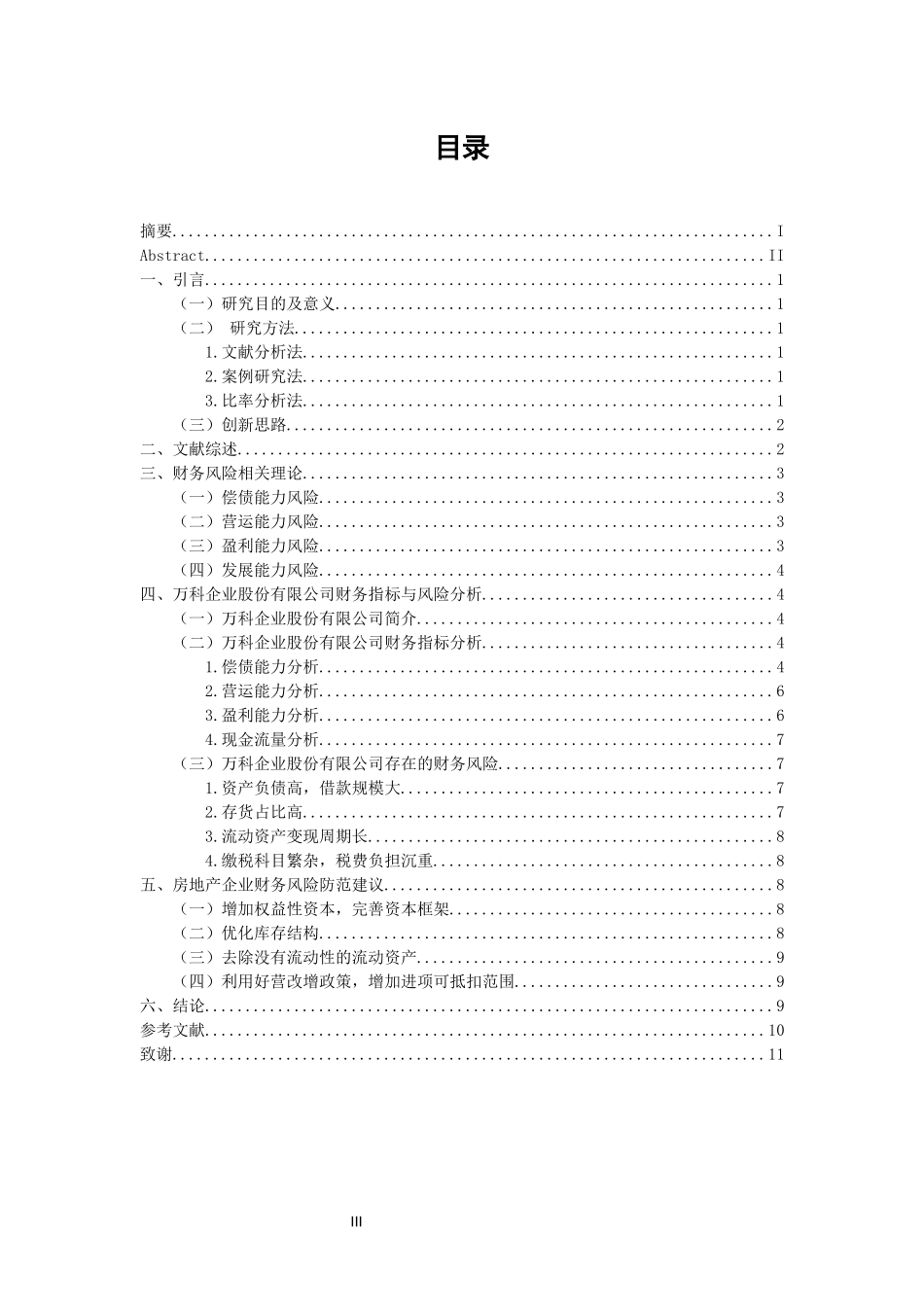I财务风险分析与防范——以万科企业股份有限公司为例摘要目前,我国 GDP 在很大程度上受房地产行业的影响,房地产行业作为支撑国民经济发展的行业当之无愧,然而由于房地产公司向来运营起来都是运行成本高、资金回收期长、资产负债率高,这也使得房地产企业常常存在着或多或少的财务风险。万科企业股份有限公司在房地产行业中占据着举足轻重的地位,具有该行业的共同特征,涵盖的财务风险也相对较多。因此,本文以财务风险相关理论为基础结合案例分析,详细分析了万科企业股份有限公司的偿债能力、营运能力、盈利能力和现金流量等财务指标,发现有资产负债高,借款规模大、存货占比高、流动资产变现周期长、缴税科目繁杂,税费负担沉重等财务问题存在于企业中,并随即结合其风险产生的原因,提出了对于房地产企业应对财务风险的针对性防范建议:扩大权益性筹资,优化资本结构;优化库存结构;流动资产中剔除不具备流动性的部分;积极应对营改增,扩大进项可抵扣范围。关键词:房地产企业;财务指标;财务风险;权益性筹资IIFinancial Risk Analysis and Prevention——Taking Vanke Enterprise Co., Ltd. as an ExampleAbstractAt present, China's GDP is largely affected by the real estate industry. The real estate industry is well deserved as an industry that supports the development of the national economy. However, because real estate companies have always operated with high operating costs, long capital recovery periods and high asset-liability ratios It also makes real estate companies often have more or less financial risks. Vanke Enterprise Co., Ltd. occupies a pivotal position in the real estate industry. It has the common characteristics of the industry and covers relatively large financial risks. Therefore, based on financial risk-related theories and case analysis, this paper analyzes in detail the financial indicators of Vanke Enterprise Co., Ltd.'s debt repayment ability, operating ability, profitability, and cash flow. It is found that there are high assets and liabilities, large borrowing sca...


